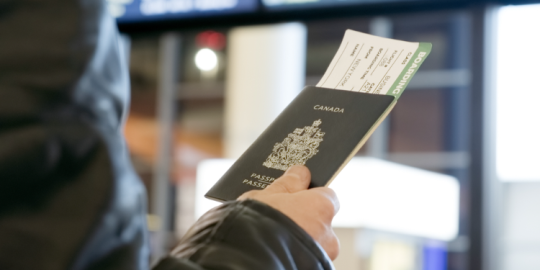An overview of Malta and Hungary
According to a study by William Russell, an international insurance company, it is easier to immigrate to Hungary, Malta, and Austria. Among these three, Hungary is the most accessible for expatriates, scoring 3.85/10. Malta is close behind with a score of 3.87/10, and Austria follows suit with 3.91/10. The study's findings are based on the number of foreigners in the country, estimated visa costs, the required minimum income, and the application processing time.
Hungary, with a relatively small foreign resident community of 6.1%, offers lower average visa fees than other countries (only £58). The minimum income requirement in Hungary, around £13,000, is also significantly lower compared to other countries. In Malta, one must earn at least £28,000 and pay £240 to secure a visa. Austria requires an even higher income (£39,034), but visa costs are cheaper (£137). However, Austria wins in processing speed, offering shorter waiting times of 3 months compared to 4 months for Hungary and Malta. Foreigners are usually more attracted to Austria (19.3%) than to Hungary, but there are fewer of them in Malta (26% of foreigners).
Beyond immigration procedures, what are Malta and Hungary's benefits? Economic growth, immigration policies, and career prospects—let's explore the advantages of these two states.
Malta is seeking foreign talent
Malta is quite popular among foreign entrepreneurs (especially Europeans) for its favorable tax policies. European nationals also enjoy more lenient administrative formalities.
In 2017, Malta was already attracting foreign entrepreneurs and opening its doors to European job seekers to address a labor shortage across all sectors. At that time, the island with 400,000 inhabitants launched a massive campaign to attract 20,000 unemployed Europeans over five years. By 2021, Malta had over 115,000 foreign residents, with Italians being the largest community (14,000), followed by Britons and Indians. Brexit has boosted immigration, with more and more French and Italians seeking to learn English turning to Malta, where the number of English language schools is increasing.
Promising economic growth
Immigration is a key driver of Malta's economy. According to the IMF, the island's GDP grew 6.4% in 2023. The IMF also ranked Malta among the strongest economies in Europe. The dynamic island enjoys full employment (2.3% unemployment in November 2023), significantly benefiting future expatriates. Immigration also helps to boost one of Europe's lowest birth rates.
The government changed its immigration strategy in 2021. The new employment plan for 2020-2030, promoted by Minister of Finance and Employment Clyde Caruana, focuses on skilled and highly skilled foreign labor.
A new work permit for non-European talents
Highly skilled non-European workers can also benefit from eased conditions, thanks to the Specialist Employee Initiative (SEI), a new work permit introduced in January 2024. The SEI promises an expedited process, with visa issuance within 15 working days. To qualify, applicants must hold a degree (bachelor's or higher, or a diploma with at least three years of experience), have secured a job with a Maltese company, and earn at least €25,000 annually. The application fee is €300. The SEI is valid for one year and renewable for up to three years.
Hungary is also seeking foreign talent, but with caution
Unlike Malta, Hungary is not known as a land of immigration (as indicated by the William Russell study). Prime Minister Viktor Orbán, who has led the country since 2010, has described himself as "anti-immigration." Indeed, European nationals can work in Hungary without a work permit, provided they register with local authorities after three months of stay. Still, the country has not implemented a policy similar to Malta's.
Gradual opening to foreign workers
Viktor Orbán is slightly opening up the country to foreign workers to address the glaring labor shortages. Businesses are urging the executive to facilitate the arrival of non-European foreign workers. In September 2021, a decree allowed nationals from several Southeast Asian and European countries to obtain a renewable two-year work visa. A year earlier, the government had already eased recruitment from several non-European countries, including South America and Asia.
These foreign professionals primarily work in the industrial sector. On March 9, 2023, Orbán acknowledged that Hungary "will need 500,000 new workers in the next year or two." However, he also promised to prioritize the employment of Hungarians. Foreigners would only be there for "a fixed period."
Promising sectors in Hungary for expats
Besides industry, Hungary also needs foreign talent in the tourism, hospitality, transportation, and agriculture sectors. Companies, including major groups established in Hungary (like Samsung), rely on foreign labor, an indispensable development engine. Yet, economic growth remains slow, even declining by -0.9% in 2023, according to the Hungarian Central Statistical Office (Központi Statisztikai Hivatal). The growth observed during the summer of 2023 was hampered by an overall gloomy economic climate, notably that of Germany, a historic industrial and commercial partner. Hungarian Minister of Economy Mihály Varga quickly dismissed this recessionary situation and promised a growth of 3 or 4% this year.
















